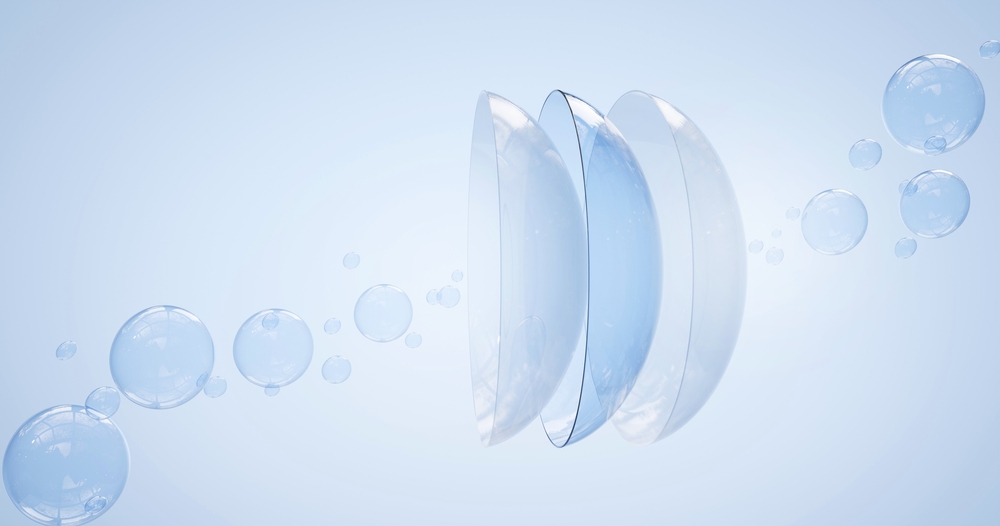
When it comes to addressing specific eye conditions, regular contact lenses may not always provide the best solution. Specialty contact lenses are designed to meet the unique needs of individuals with specific eye conditions, offering enhanced comfort and visual clarity.
Understanding Different Eye Conditions
Astigmatism is a common condition where the cornea or lens of the eye has an irregular shape, causing blurred vision. This can make it challenging for traditional contact lenses to provide clear vision.
Presbyopia is an age-related condition that affects the eyes' ability to focus on close objects. It typically occurs around the age of 40 and can make it difficult to perform tasks such as reading or using a smartphone.
Keratoconus is a progressive eye condition where the cornea becomes thin and bulges into a cone shape. This irregular corneal shape can lead to distorted vision and may require specialized contact lenses for optimal vision correction.
Dry eyes occur when the eyes do not produce enough tears, or the tears evaporate too quickly. This can cause discomfort, redness, and blurred vision, making it crucial to find contact lenses that provide adequate moisture.
Types of Specialty Contact Lenses
- Soft Toric Lenses: Soft toric lenses are made of a flexible, water-containing material that conforms to the shape of the eye. They provide excellent comfort and are available in various replacement schedules, including daily disposable, bi-weekly, and monthly options.
- Rigid Gas Permeable (RGP) Toric Lenses: RGP toric lenses are made of a firm, oxygen-permeable material. They provide clear and crisp vision, especially for individuals with higher levels of astigmatism. RGP lenses also offer greater durability and longevity compared to soft lenses.
- Hybrid Toric Lenses: Hybrid toric lenses combine the best of both worlds by incorporating a rigid center for clear vision and a soft outer skirt for enhanced comfort. These lenses are an excellent option for individuals who prefer the visual acuity of RGP lenses but desire the comfort of soft lenses.
- Soft Multifocal Lenses: Soft multifocal lenses are available in both daily disposable and monthly replacement options. They provide a seamless transition between near and distance vision, ensuring clear vision at all distances.
- Silicone Hydrogel Lenses: Silicone hydrogel lenses are known for their high oxygen permeability and moisture retention properties. They allow more oxygen to reach the cornea and help prevent dryness, making them an excellent choice for individuals with dry eyes.
- Scleral Lenses: Scleral lenses, due to their large size, can hold a reservoir of artificial tears against the eye's surface, providing continuous lubrication and moisture. This makes them an ideal option for individuals with severe dry eye symptoms.
The Fitting Process for Specialty Contact Lenses
The fitting process for specialty contact lenses involves several steps to ensure optimal comfort and vision correction. An optometrist will perform a comprehensive eye examination to assess your eye health and determine the most suitable type of specialty contact lens for your specific needs.
Corneal measurements, such as corneal topography or optical coherence tomography, may be performed to map the shape and curvature of your cornea. These measurements help in selecting the appropriate lens design and fit. The eye doctor will fit you with trial lenses to assess their comfort, vision correction, and overall fit. This process may involve trying different lens designs and modifications to achieve the best possible outcome.
After the initial fitting, follow-up visits will be scheduled to monitor your progress and make any necessary adjustments to ensure optimal comfort and visual acuity.
Schedule Your Contact Lens Exam with Eagle Eye Vision Center Today
Specialty contact lenses provide tailored solutions for individuals with various eye conditions, including astigmatism, presbyopia, keratoconus, and dry eyes. By understanding the different types of lenses available and the specific needs they address, you can make an informed decision about which specialty contact lens is right for you. Consult with an eye care professional who specializes in fitting specialty contact lenses to ensure optimal comfort and vision correction.
Schedule a consultation with our optometrist to explore specialty contact lens options that can provide the best solution for your specific needs, visit Eagle Eye Vision Center at our office in Stafford, Virginia, or call (540) 720-0407 to book an appointment today.









